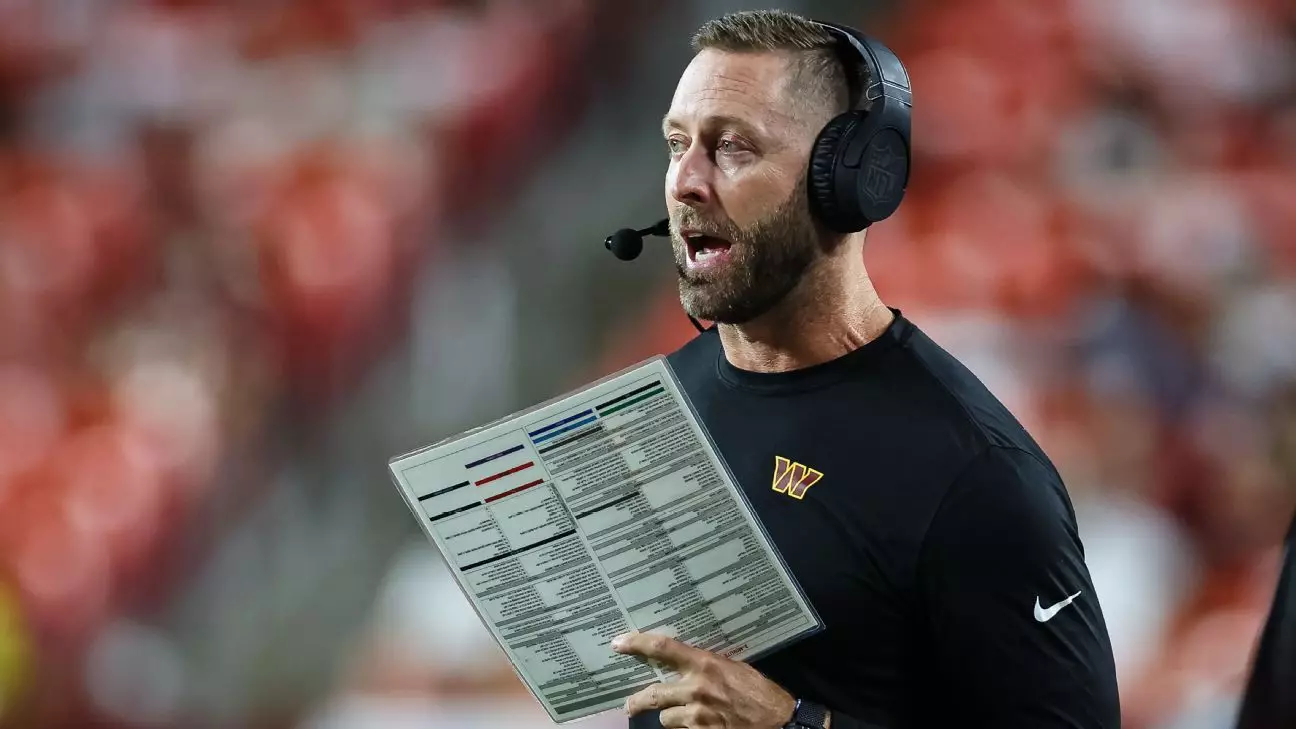In the bustling landscape of professional football, success hinges not just on talent but on the seamless synchronization of team members. The Washington Commanders exemplify this, revealing fragility in their offensive cohesion during a pivotal preseason. Despite possessing promising talent, their struggles underscore a vital lesson: synchronized teamwork cannot be rushed. The absence of key players like wide receiver Terry McLaurin has cast a long shadow over the offense, highlighting how critical full squad participation is to actualizing potential. When the core is missing, the entire machine falters; talents become isolated, and strategic execution becomes muddled.
The team’s inability to cultivate chemistry reflects a fundamental truth: football is as much about relationships and rapport as it is about individual prowess. The fact that McLaurin has remained on trainers’ tables for much of the summer illustrates the importance of on-field repetitions, not just physical conditioning. Success in football isn’t just built on talent but is engineered through deliberate, sustained interactions—something that offseason setbacks, injuries, and holdouts threaten to dismantle.
Strategic Implications of Absence
The Commanders’ offensive struggles are compounded by injuries and player absences, all of which threaten to weaken the team’s competitive edge. With McLaurin on the sideline, the offense’s ability to develop harmonious timing and trust is compromised. The absence of other starters, including guards Sam Cosmi and Brandon Coleman, hampers the offensive depth and adaptability. The issues aren’t merely about missing players; they represent a broader strategic vulnerability born from incomplete roster integration.
A team’s offensive identity relies heavily on the synergy between quarterback and receivers. The reclusive development of Jayden Daniels — a promising talent with a track record of efficiency — is particularly affected by this lack of chemistry. His previous success targeting McLaurin underscores how crucial that connection is, especially in high-pressure moments in the red zone. Without this established rapport, even the most talented quarterback faces limitations, emphasizing that individual skill alone cannot compensate for a lack of team harmony.
Risk of Underestimating Preparation
Preseason performances often serve as litmus tests, revealing not only tactical readiness but also team unity. Unfortunately, the Commanders have started their campaign below expectations. While strategic moves like trading for Deebo Samuel and drafting promising rookies like Josh Conerly Jr. demonstrate ambition, these acquisitions are merely pieces of a larger puzzle that requires time to fit together.
The crucial insight here is that acquiring talent does not guarantee immediate success. The true challenge lies in fostering trust and understanding among players—an intangible but vital element of team dynamics. Kingsbury’s emphasis on “time on task” reflects an acknowledgment that football’s intricacies demand patience and concerted effort. Ironically, these delays threaten to erode early confidence just as the season looms, risking a pattern of reactive adjustments rather than proactive mastery.
Lessons in Resilience and Forward Planning
The situation presents a stark lesson: Sport’s unpredictable nature often exposes gaps in planning and preparation, yet it offers an opportunity for strategic resilience. The Commanders must realize that building a cohesive offense cannot rely solely on talent but on persistent effort and adaptability. Early setbacks should fuel their resolve, sharpening focus on on-field chemistry and role clarity. With three weeks remaining, time remains, but it will demand intensified effort and unwavering commitment from the entire squad.
It’s not simply about patching holes—it’s about cultivating a culture of resilience, where individual setbacks serve as catalysts for collective growth. Coaches and players must develop a mindset that values incremental progress, turning current adversity into long-term strength. The early struggles provide a chance to reevaluate, recalibrate, and reinforce the foundational elements of team chemistry that ultimately determine success on game day.


Leave a Reply